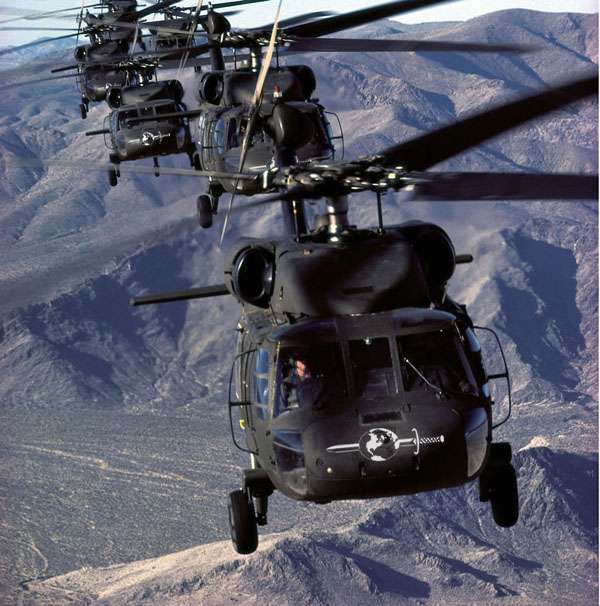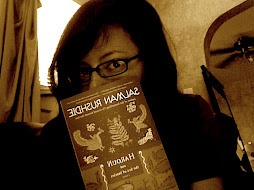(pg. 73) It's good that throughout this book there are hints of humor despite how dark the story is. This combined with the unique use of punctuation and storytelling style is what makes Eggers a good author. I suppose this is what makes the story entertaining to read. It could have been different if Achak wrote it as an autobiography. Even though he had first hand experience and could have made the story more accurate, it's Eggers writing style that makes the story flow.
Anyway, an instance that made me laugh a bit was when Michael TV Boy was about to drop a book on Valentino's head. The conversation goes a bit how I think an injured bug on the floor would communicate with a threatening human. "'Young man!' I say, projecting my voice down the hall. 'Please don't drop anything on me! I will be quiet if that's what you want.'... 'Do you want me to be quiet? I will stay quiet if you'll stop dropping things on me.'"(Eggers 73)

(pg. 73) "He has effectively eliminated me from his view." (Eggers 73) Why does Michael care if he can see Valentino on the floor or not? It could either be Valentino's idea that TV Boy thinks lowly of him because he is African, going back to Achak thinking about how Michael thinks he can smash him with a phonebook. So if Achak thinks he can smash an African with a phonebook, he shouldn't have to look at him at all, should he? Or perhaps Michael feels guilty about having to guard Valentino, but he doesn't have a choice. He doesn't want to look at him or hear him; he wants it to be like he's not even there. This goes back to when Achak was thinking about saving Michael from Powder and Tonya's lifestyle. "I could wriggle my way out of my bindings, and then convince you that being with me will serve you better than remaining with Tonya and Powder." (Eggers 48)
(pg. 73) "Be grateful, TV Boy. Have respect. Have you seen the beginning of war? Picture your neighborhood, and now see the women screaming, the babies tossed into wells. Watch your brothers explode. I want you there with me." (Eggers 73) This goes back to when Achak would tell his "silent stories" to people who have wronged him, such as Michael. That is basically what he has been doing this whole book, ever since Powder and Tonya began robbing his house.
"When I first came to this country, I would tell silent stories. I would tell them to people who had wronged me. If someone cut in front of me in line, ignored me, bumped me or pushed me, I would glare at them, staring, silently hissing a story to them. You do not understand, I would tell the. You would not add to my suffering if you knew what I have seen." (Eggers 29) That is something to think about for people we see everyday. We don't know the personal history of every person we make fun of or treat unfairly.
(pg.75) You know when you're having a nightmare and the monster is coming closer and closer, yet you can't move? Or you turn and start running and you look down and see a snail passing you? More likely, it feels like your running in water and can't go any faster, then you look down and your naked! Ah!
Well, this dream state is like what Achak was experiencing when the helicopters came. You can't seem to move, and your only option is to stand and watch. "But it was strange. Adults were running from the machines, falling, screaming. I looked at the people running, though I was too dazed to move... I was unable to move as the machines drew closer, the sound filling my head." (Eggers 74-75)

(pg. 75) When the helicopters came to Marial Bai it reminded me of the Holocaust. Mindless killing, dead people who never did anything wrong. What's wrong with the world? "I lay next to my mother, wondering about the fate of my brothers, my sister and stepsisters, my father and friends." (Eggers 75) I'm sure a lot of Jews were wondering the same thing back during WWII. How hard was it for Achak to rekindle these memories in his head for Dave Eggers to write? How hard was it for Dave Eggers to continuously hear and experience Achak's past throughout the creation of this book?
"It was the beginning of the end..." (Eggers 75) I'm sorry, I have to reference this to an Arctic Monkeys song. "Do Me a Favour", which is a pretty depressing song, about a break up most likely. Sad, just like Valentino's predicament in this chapter.
It's the beginning of the end
The car went up the hill and disappeared around the bend
Ask anyone they'll tell you that it's these times that it tends
To start to breaking off, to start to fall apart
Hold on to your heart

ARCTIC MONKEYS
(pg. 76) So, why did the army come and massacre random villagers playing soccer? Because rebels were forming in Marial Bai? Oh, that makes sense, since last chapter it said, "The rebels were not there when the people of Marial Bai reaped what they had sown." (Eggers 71) So the village had to pay for what the rebels created, yet "the rebels for whom this was retribution were nowhere to be found." (Eggers 76)
(pg. 77) "I was selected to accompany him, but my mother was not. She and the other wives and their children were to remain in Marial Bai, living in our half-ruined home." (Eggers 77) This reminds me of the Holocaust once again. It's strange how one tragedy reminds me of other tragedies. Example: The Sudan War is like the Holocaust and the Vietnam War. Anyway, this is like WWII because families were also separated if they went to different work or concentration camps.
(pg. 81) As I go on in the story I'm becoming closer to Valentino's father as a character. Before I had only seen him as this looming, adult figure in Achak's life. Now as I read on I'm understanding his personality more, especially when he is trying to help out his friend Bol. "My father placed his hands on Bol's shoulders. It was an intimate gesture."
(pg. 85) I can tell I am writing less in this point of the story, but it is becoming quite captivating and I'm just caught up reading the story. Hopefully that's alright. I mean, what can I say to tragedy? There are no words.
(pg. 86) "-Don't worry, she said. -The SPLA will be here soon. Circle, circle, triangle within. -With guns? -Yes. They have guns like the horsemen." (Eggers 86) Now they are relying on the rebels? What about Achak's abused father? They stole and harassed him, and they are counting on the rebels to save them? Then again, what choice do they have? Who else will save them if not the SPLA?
(pg. 86) "They were shot by the rebels and now William K and I were crushing their faces with our feet. It was glorious." (Eggers 86) Woah! That's quite violent. Then again, not surprising. When you grow up with this kind of violence around, what is there to expect but the children shaping their lives around that environment?







